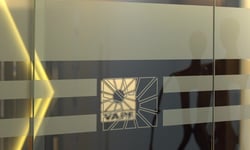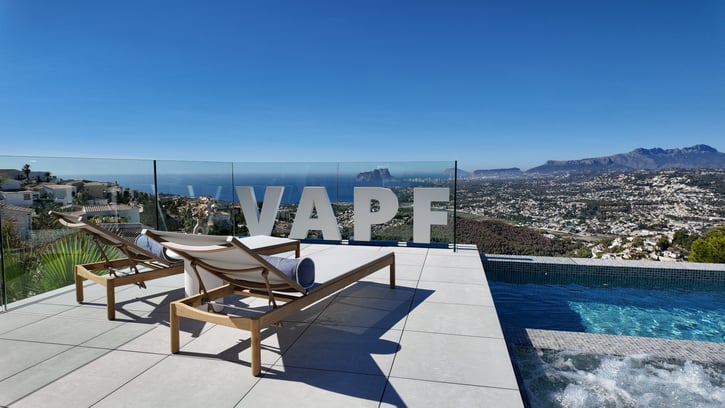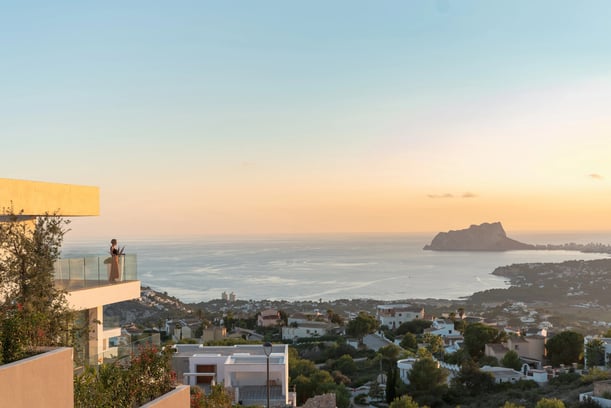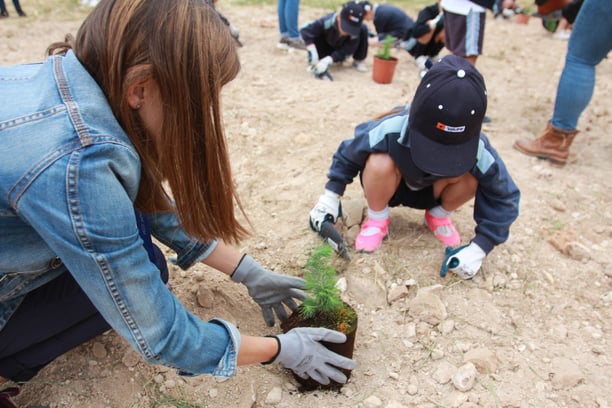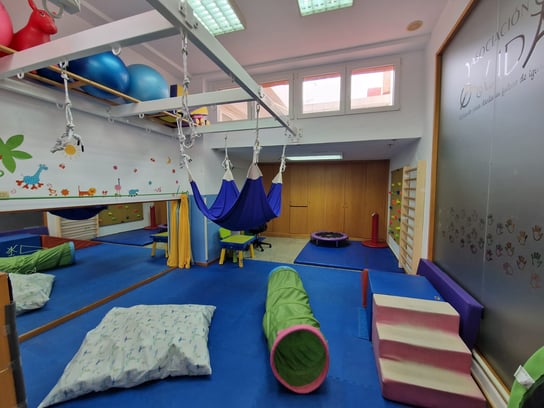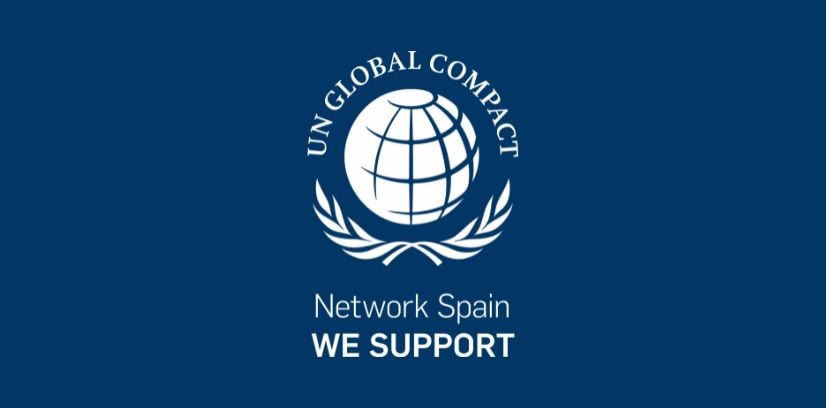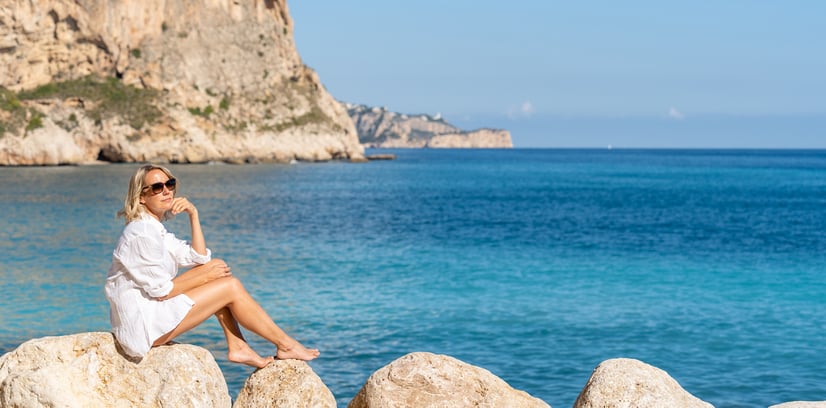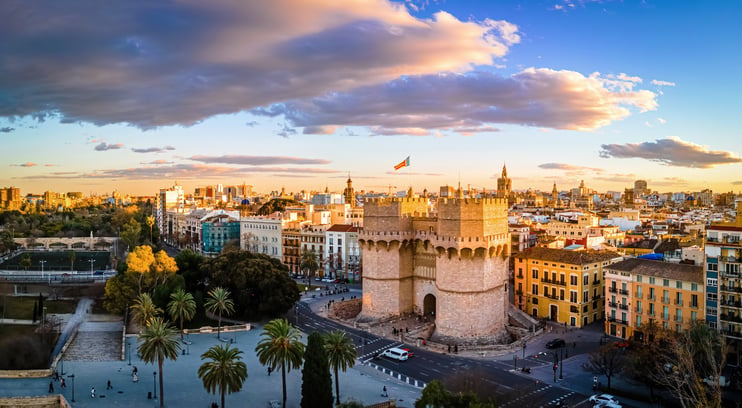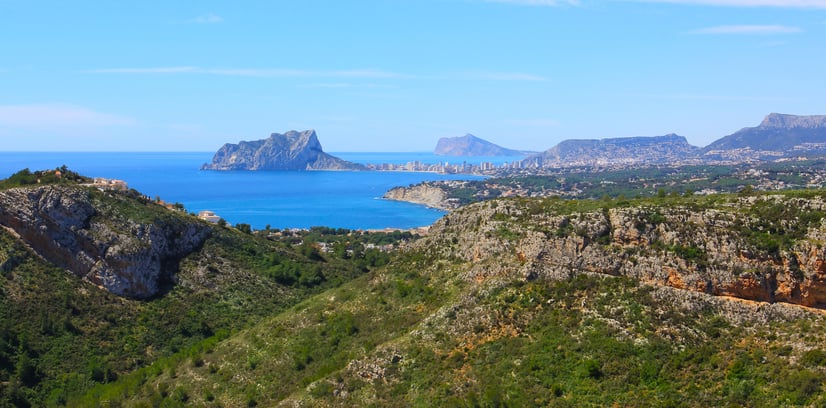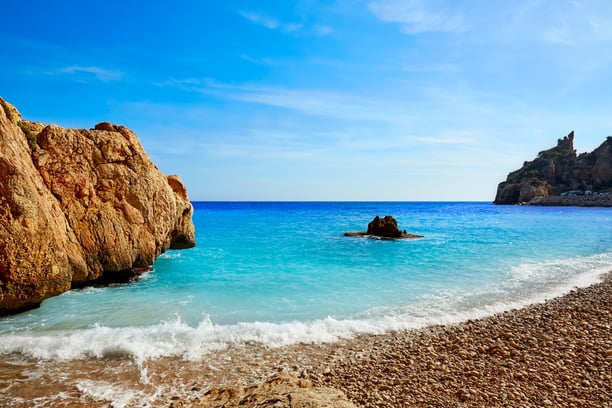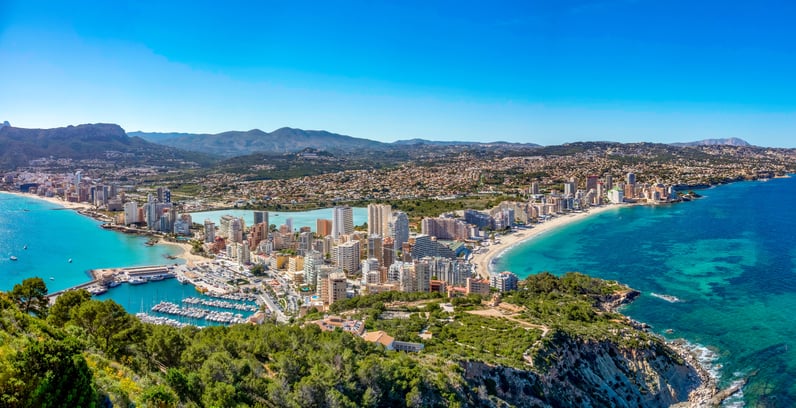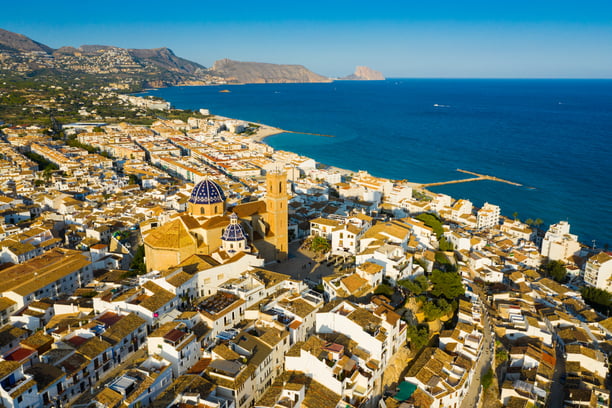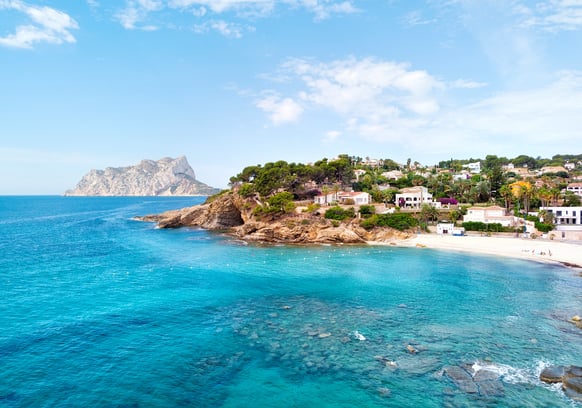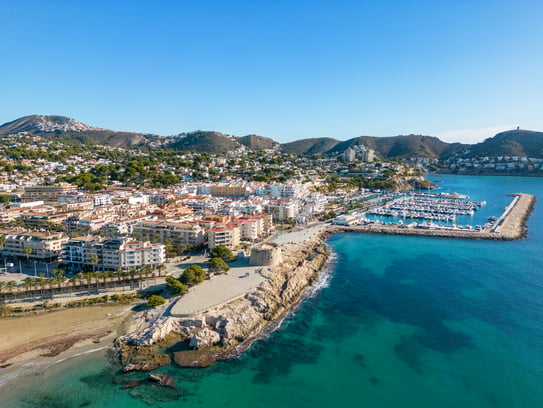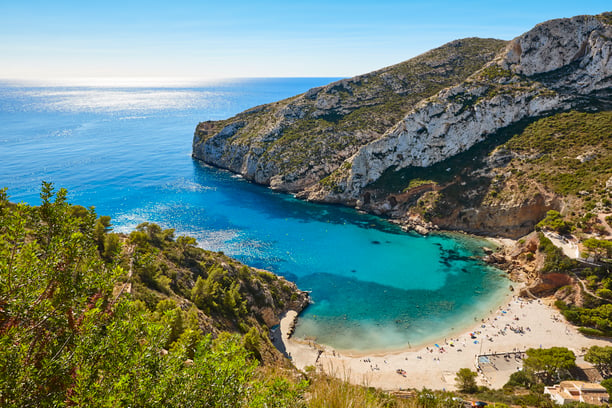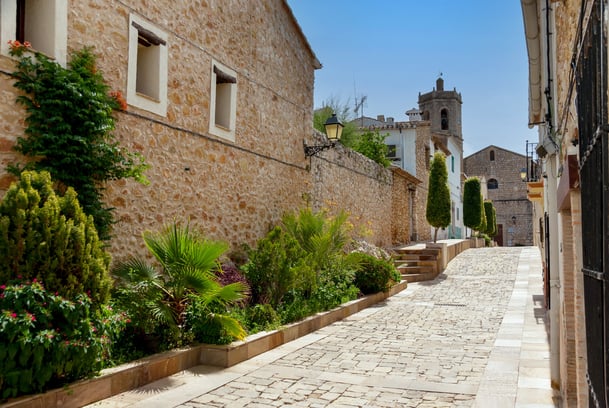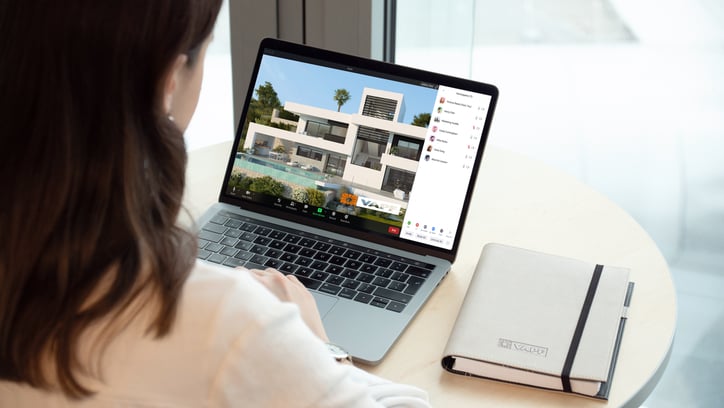- About services
- Costs and taxes
- Education System
- Healthcare system
- Other questions
Frequently Asked Questions (FAQs)
(FAQs
)In our Frequently Asked Questions section, we aim to address the most common inquiries we receive.
Questions About services
The term KYC (Know Your Customer) refers to a set of procedures that financial institutions and other organizations must follow to verify the identity of their customers and assess the potential risk of illicit activities such as money laundering or terrorism financing. This process is crucial to ensuring the integrity and security of the financial system.
What are the key elements of the KYC process?
- Customer Identification:
- Collection of identification documents such as ID card (DNI), foreigner identification number (NIE), or passport.
- Verification of the authenticity of these documents.
- Understanding the Customer:
- Collection of information about the customer’s financial situation.
- Understanding the nature of the customer's activities and the source of their income.
- Ongoing Monitoring:
- Monitoring the customer's transactions to detect any unusual or suspicious activity.
- Periodic updating of the customer’s information to reflect any changes in their situation.
What is the documentation commonly required in the KYC process?
- Identification Documents:
- National Identity Document (DNI), Foreigner Identity Number (NIE), or passport.
- Proof of Address:
- Utility bills (water, electricity, gas).
- Rental contracts or property deeds.
- Financial Information:
- Recent bank statements.
- Tax returns.
- Proof of income, such as payslips or income certificates.
- 4. Additional Information:
- Contact details (phone number, email).
- Information about professional or business activities.
What is the importance of KYC?
- Fraud Prevention: Helps to identify and prevent fraudulent activities.
- Legal Compliance: Ensures that financial institutions comply with current regulations and laws.
- Risk Management: Allows institutions to assess and manage the risks associated with each customer.
- Financial Security: Contributes to the stability and trust in the global financial system.
KYC regulations vary from country to country, but the basic principles are universal. Financial institutions and businesses must implement effective policies and procedures to comply with these requirements.
To apply for a mortgage, you will generally need to provide a series of documents that allow the financial institution to assess your financial situation and repayment capacity. Below is a list of the documents typically requested:
- Personal Identification:
- DNI (National Identity Document) for Spanish residents, or NIE (Foreigner Identification Number) for non-residents.
- Passport for foreign nationals.
- Proof of Income:
- Recent pay slips (typically the last 3 months) or proof of income if self-employed.
- Income tax returns (IRPF) for the previous year (especially for freelancers and self-employed individuals).
- Certificate of Tax Withholdings Issued by the Company.
- Employment contract or work history, if applicable.
- Bank statements (typically from the last 3 to 6 months).
- Proof of Assets:
- Bank statements showing savings or investments.
- Property ownership documents (if you own other properties or assets).
- Liabilities and Current Debts:
- List of current liabilities (e.g., outstanding loans, credit cards, etc.).
- Credit report (optional, but may be requested).
- Property Documentation (if you are purchasing a property):
- Property purchase agreement or sale contract.
- Property valuation report (the lender may arrange this, but sometimes you need to provide one).
- Cadastral reference number (from the Spanish property register).
- Other Documentation:
- Proof of marital status (marriage certificate, if applicable).
- Documents for any co-borrowers (if applying with another person, such as a spouse or relative).
- Documents for additional properties owned, if applicable.
Please note that specific banks or mortgage lenders may have additional requirements, so it's important to check with your lender for any additional documentation they may request.
At GRUPO VAPF, we offer our clients the service of applying for a mortgage with the banking institutions we collaborate with, assisting them in submitting the required documentation, managing the appraiser's visit in the case of completed properties, with the aim of securing the best possible conditions.
- Value Added Tax (IVA) – 10% (on the total contract amount).
- Stamp Duty (Impuesto de Actos Jurídicos Documentados - AJD) – 1.5% (on the taxable base of the contract).
- Notary Fees – 0.5% (approximately €1,100).
- Land Registry Fees – 0.5%.
- Lawyer Fees – 0.8-1% (varies depending on the lawyer and the services contracted).
- Notary Management Fees (processing of AJD payment and registration at the Property Registry). Approximately €350.
Public healthcare in Spain is primarily managed by the National Health System (SNS). It operates on the principle of universal access to medical care, funded mainly through taxes and administered at both national and regional levels to provide healthcare services to all legal residents in the country.
1. Early Childhood Education
Early Childhood Education is a distinct educational stage that caters to children from birth to six years old. It is organised into two cycles, both of which are educational in nature:
- The first cycle covers up to 3 years old.
- The second cycle, which is free of charge, runs from 3 to 6 years old.
2. Primary Education
Primary Education is compulsory and free of charge. It consists of six academic years, typically followed between the ages of 6 and 12. Generally, students will begin the first year of Primary Education in the calendar year they turn six years old.
3. Compulsory Secondary Education (ESO)
Compulsory Secondary Education (ESO) is an obligatory and free stage that completes basic education. It consists of four academic years, usually undertaken between the ages of 12 and 16. The final year of ESO is aimed at guiding students towards either post-compulsory studies or entering the workforce.
Successfully completing ESO leads to the title of "Graduated in Secondary Education" and grants access to any of the post-compulsory educational options outlined in the legislation.
4. Bachillerato (Upper Secondary Education)
Bachillerato is a post-compulsory stage, usually undertaken from the age of 16, after completing Compulsory Secondary Education (ESO). It lasts two years and is pre-university in nature. After completing Bachillerato, students can enter Higher Vocational Education cycles or attend university, following the successful completion of the University Access Exams.
5. Vocational Education and Training (VET)
Currently, Vocational Education and Training (VET) provides the most practical, work-oriented education, responding to the demand for qualified personnel in various professional sectors.
VET offers more than 150 vocational training cycles across 26 professional fields. It is structured based on both theoretical and practical content, tailored to different professional areas.
6. University Studies
- Bachelor’s Degree. The purpose of Bachelor’s degree studies is to provide students with a general education in one or more disciplines, aimed at preparing them for professional activities. Completing a Bachelor’s degree grants the title of graduate with a specific designation, as registered in the Register of Universities, Centres, and Degrees (RUCT).
- Master’s Degree. The purpose of Master’s degree studies is to provide students with advanced, specialised, or multidisciplinary training, aimed at academic or professional specialisation, or initiating research work. Completing a Master’s degree grants the title of Master’s degree holder, with a specific designation, as listed in the RUCT.
- Doctoral Studies. Doctoral studies refer to the third cycle of official university studies, leading to the acquisition of skills and competencies related to high-quality scientific research. Completing Doctoral studies grants the title of Doctor, with the designation listed in the RUCT.
- Effect of University Degrees. These university degrees are official and valid throughout the national territory. They will have full academic effects and, where applicable, will authorise the holder to carry out regulated professional activities, in accordance with the relevant regulations.
When the degrees qualify individuals for regulated professional activities in Spain (for example, in engineering and architecture, in health sciences, or in the field of social and legal sciences for teaching professions), the Government will establish the conditions that the corresponding study plans must meet, which must also comply with the applicable European regulations.
- Universal Access: Access to healthcare within the public health system is universal, meaning all legal residents in Spain are entitled to receive medical care, regardless of their financial or insurance status.
- Health Card: All legal residents in Spain receive a health card, which allows them to access services provided by the National Health System. This card is typically required to receive medical care at public health centres and hospitals.
- Public Funding: Public healthcare in Spain is primarily funded through taxes, although there are additional contributions from patients in certain cases, such as co-payments for medications and specific healthcare services.
In the province of Alicante, there are over a thousand public educational centres. On the Generalitat Valenciana website, there is a search tool through which you can select educational centres by municipality and level.
For specific information about public centres in the province of Alicante, you can access the details through the following link:
- Maximum Mortgage Loan 50-60% of the total contract amount excluding VAT (depending on income level, age, nationality of the client, etc.).
- Interest Rates ranging from 4-7% (always check with entities and offers).
- Notary Fees 0.5%.
- Land Registry Fees 0.5%.
- Stamp Duty on Legal Documents - AJD) 1.5% - (usually 1.7 x Mortgage Amount, but depends on the bank).
- The mortgage loan is applied at the time of the notarial deed of the purchase transaction, i.e., when the property is transferred.
Alicante:
- British School of Alicante
- Phone Number: +34 965 106 351
- Web: https://www.alicante.kingscollegeschools.org/
- Liceo Francés
- Phone Number: +34 965 262 508
- Website: https://mlfalicante.org/
Altea:
- Altea International School
- Phone Number: +34 625 295 634
- Website: https://altea-international-school.es/?lang=es
Benidorm:
- Lope de Vega International School
- Phone Number: +34 965 854 150
- Website: https://lopedevega.es/
- Costa Blanca International College
- Phone Number: +34 966 803 411
- Website: http://costablancacollege.com/
Elche:
- Newton College
- Phone Number: +34 966 610 238
- Website: https://newtoncollege.es/
L’Alfas del Pi:
- Sierra Bernia School
- Phone Number: +34 966 875 149
- Website: https://sierraberniaschool.es/es/
La Nucia:
- Elian's British School
- Phone Number: +34 966 877 055
- Website: https://lanucia.iepgroup.es/en/
Mutxamel:
- The English School of Mutxamel
- Phone Number: +34 965 951 017
- Website: https://www.theenglishschool.es/es/
- Mar de Estrellas Montessori School
- Phone Number: +34 966 190 311
- Website: https://www.mardeestrellas.es/
Poble Nou De Benitatxell:
- The Lady Elizabeth School Colegio Internacional
- Phone Number: +34 671 698 764
- Website: https://ladyelizabethschool.com/en/
San Miguel de Salinas:
- El Limonar International School Villamartín
- Phone Number: +34 966 722 821
- Website: https://elisvillamartin.com/es/
Vila Joiosa:
- Littletown Colegio Internacional- Educación Infantil
- Phone Number: +34 671 995 838
- Website: https://www.littletown.es/
Xàbia:
- Xabia International College
- Phone Number: +34 966 471 785
- Website: https://xic.college/es/
- Firs Independent Primary School
- Phone Number: +34 966 472 929
- Website: http://www.firsprimary.com/
On the Generalitat Valenciana website, there is a search tool that allows you to select educational centres by municipality and level. Specifically for the province of Alicante, information on all private centres can be accessed through the following link:
When purchasing a property, there are various fees and expenses, either monthly or annually, that the owner must pay, including the Property Tax (IBI), community fees, alarm subscription, internet, etc.
Below is a detailed breakdown of the expenses and rates, along with their amounts:
1. Property Tax (IBI): This is a municipal tax calculated based on the value the local council assigns to the property (the cadastral value), which is usually lower than the market value.
- It is applied at 0.83% annually on the cadastral value, which is generally 0.15-0.25% of the market value.
- Example: Property worth €150,000 - IBI approximately €375/year.
2. Waste Disposal and Sewerage Tax (charged in all municipalities):
- Benitachell - Cumbre del Sol: +/- €100 - €110/year.
- Altea: +/- €150/year.
3. Community Fees: In apartment complexes, the fee varies depending on the square meters of each apartment and the common services available in the development.
4. Non-Residents Income Tax (IRNR): This is a direct tax on income obtained in Spain by individuals and entities that are not residents. It varies depending on whether the property is rented out or used for personal purposes.
- Personal Use: 0.5% of the cadastral value: ±€225/year.
- If the property is rented out, 25% on rental income.
5. Alarm Connection Fees to the Central Alarm Receiving Centre (CRA):
- Cumbre del Sol:
Offer: First 4 months of connection and callout are free for all property types. From month 5, the following options are available:
-
- Connection to CRA: €24 + VAT/month.
- Connection to CRA + Callout service: €30 + VAT/month (requires granting keys to CRA).
- La Sella and Altea:
-
- Connection to CRA: €24 + VAT/month.
- Connection to CRA + Callout service: €30 + VAT/month (requires granting keys to CRA).
6. Garden Maintenance: (for a typical plot with superior quality): The annual cost is €1,570.00 (excluding VAT).
7. Pool Maintenance: For a pool with an overflow and a water surface of approximately 53 m², the annual cost is €800.00 (excluding VAT).
Attached is a table showing the costs associated with some of our developments. These costs are valid as of January 2023.
| Community Fees | Property Tax | Garbage Tax | |
|---|---|---|---|
| Jardines de Montecala | +/- 50€/month or 600€/year | +/- 250€ | 100€/year |
| Montecala Gardens | +/- 55€/month or 660€/year | +/- 300€/year | 100€/year |
| Blue Infinity | +/- 215€/month or 2.580€/year | +/- 500-550€/year | 110€/year |
| Novamar II | +/- 340€/month or 4.080€/year | +/- 400€/year | 100€/year |
| La Sella | +/- 275€/month (*) or 3.300€/year (*) | x | x |
| Blanc Altea | +/- 1.700€/year | +/- 950€/year | 140€/year |
| Ocean Suites | +/- 480€/month or 5.760€/year | +/- 500€/year | 140€/year |
(*) Estimate, as there is no real data yet since the community has not been established.
Primary healthcare services are delivered through health centres and clinics, where patients can consult family doctors, paediatricians, and nurses. These facilities serve as the first point of contact for most medical needs and are also responsible for health promotion and disease prevention. They are strategically located in the majority of municipalities across the province.
Specialised care is provided in hospitals and specialised centres, where patients are referred when they require treatment from experts in various medical fields.
- Alcoy - Hospital Virgen de los Lirios
- Alicante - Hospital General Universitario Dr. Balmis
- Dénia - Hospital de Dénia
- Dénia - Hospital La Pedrera
- Elche - Hospital General Universitario de Elche
- Elche - Hospital Universitario Vinalopó
- Elda - Hospital General Universitario de Elda-Virgen de la Salud
- Orihuela - Hospital Vega Baja de Orihuela
- Sant Joan d'Alacant - Centro Dr. Esquerdo
- Sant Joan d'Alacant - Hospital Universitario San Juan de Alicante
- San Vicente del Raspeig - Hospital Sant Vicent del Raspeig
- Torrevieja - Hospital Universitario de Torrevieja
- Villajoyosa - Hospital Marina Baixa de la Vila Joiosa
The operation of private health insurance is similar to that of any other type of insurance: a monthly or annual premium is paid to have access to the medical services offered by the insurance provider, based on the insurance plan chosen.
When looking to "supplement" the healthcare coverage provided by the Public Health System, many people opt for private health insurance.
One of the main reasons for choosing private health insurance in Spain is the speed of care. Private hospitals and clinics prioritise minimising waiting times for consultations, diagnoses, and treatments. Additionally, private healthcare allows patients to directly consult specialists without the need for a referral from a general practitioner.
Private healthcare facilities in Spain also offer extended hours, accommodating the schedules and needs of their patients.
Flexibility is another key factor, as patients can choose from a wide range of professionals included in their private insurer’s medical network. If a patient is dissatisfied with a particular doctor or simply prefers to be treated by another specialist, they can easily request a change through their insurer.
Equally straightforward is the option to seek a second medical opinion, a feature highly valued by users. This ensures that patients can have their cases reviewed by multiple professionals, providing added reassurance and enhancing the effectiveness of private health insurance in Spain.
Private health insurance plans can be broadly classified as follows:
- Insurance without co-payment: A single premium is paid for medical services, regardless of the number of times the services are used.
- Insurance with co-payment: In addition to the private health insurance premium, a small fee is paid each time the contracted services are used.
In both cases, medical care is provided at facilities owned by or affiliated with the insurance provider.
- Refund: The client freely chooses the doctor and/or clinic they wish to visit (whether or not it has an agreement with the insurance company) and pays for the services upfront. Afterward, the client submits the expense to the insurer, who will reimburse the money (according to the terms specified in the policy).
- No hospitalization: This type does not cover hospitalization (in case it is needed).
- Dental: This is specifically for dental treatments. It can be purchased individually, although it is sometimes included in more comprehensive private health insurance plans.
The services offered by private health insurance can be satisfied in two ways:
- Through the network of healthcare providers made available by the insurance company (this includes hospitals, clinics, and healthcare professionals).
- Allowing the insured to choose which medical center and professionals they wish to receive care from (reimbursement option).
In Spain, the first option is the most popular. However, many private health insurance users appreciate having the freedom to choose where and by whom they are treated.
- Alicante - Clínica HLA Vistahermosa
- Alicante - Hospital Medimar Internacional
- Alicante - Vithas Hospital Perpetuo Internacional
- Benidorm - Hospital Clínica Benidorm
- Benidorm - Hospital IMED Levante
- Denia - Hospital HLA San Carlos de Dénia
- Elche - Hospital IMED Elche
- Mutxamel - Centro de Rehabilitación Casaverde
- Torrevieja - Hospital Quirónsalud Torrevieja
- Vall de Laguar - Sanatorio San Francisco de Borja
- Albir - SHA Wellness Clinic

